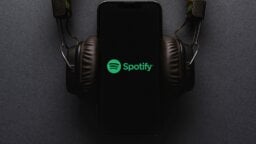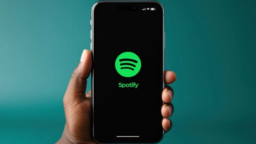“Podcasts are popular for a lot of the same reasons music is popular.”
Spotify‘s on a podcast binge… and it wants artists to feed its platform’s insatiable appetite for audio content.
In a news post on Spotify for Artists published yesterday (May 16), Spotify asked artists, “Do you need your own podcast?”
The answer is an unequivocal “yes”, with Spotify encouraging artists to use its recently acquired Anchor platform to make them.
Anchor is a free-to-use podcast creation, distribution and monetization platform that says its mission is to “democratize audio”. It was one of two New York-based podcast companies (alongside Gimlet Media) acquired by Spotify in February for $343 million combined.
“There’s no doubt that podcasting is expanding like crazy, and if you have a story to tell, someone out there is dying to hear it,” writes Spotify in the news post.
“For those who are ready to experiment, have fun, and try out a new way to connect with fans, here’s why it’s time for you to start using Anchor.”
Reasons that Spotify suggests for creating podcasts range from building an artist’s brand to connecting with audiences.

This could all prove significant to Spotify’s business model as time moves on.
This week has offered us our first real significant glimpse into the inner workings of Spotify’s new podcast and ‘Audio First’ content strategy.
Earlier this month, Spotify co-founder Daniel Ek revealed that there were nearly 40,000 tracks being uploaded to Spotify each day.
Ek also said that the “number of creators that are engaging directly with Spotify’s platform continues to increase, growing to over 3.9 million” in the first three months of this year.
(As we’ve previously noted, this is really an investor-y way of saying that 3.9 million artists – and podcasters – now feature within Spotify’s gigantic catalog.)
Added Ek: “We believe this engagement from artists, labels and publishers shows a strong sign that there’s an increased appetite for more marketplace tools and services.”
“So, you’ve spent a bunch of time making music, and you work hard to get your music into fans’ ears via Spotify. But have you ever considered speaking directly to them? Enter Anchor.”
Spotify
Spotify has now demonstrably begun addressing this “increased appetite for more marketplace tools and services”.
On Monday, SPOT announced that, via its subsidiary Soundtrap – the Stockholm-based ‘online recording studio’ company that Spotify acquired in November 2017 – it had launched a cloud-based podcast studio called Soundtrap for Storytellers, carrying a subscription price of $14.99/per month.
Then yesterday, writing on its Spotify for Artists page, Spotify said: “So, you’ve spent a bunch of time making music, and you work hard to get your music into fans’ ears via Spotify. But have you ever considered speaking directly to them? Enter Anchor.
“In February, we officially welcomed the podcasting company to the Spotify family so that we could provide audiences and fans with even more of their favorite things to listen to, and present artists with new ways to engage with their fans.”
Spotify is making a concerted effort to encourage more of its platform’s 3.9 million artists and dedicated-podcast creators to use its marketplace tools – like Anchor and Soundtrap for Storytellers.
If it’s successful – and artists use Spotify itself to make and distribute podcasts which “provide audiences and fans with even more of their favorite things to listen to” – then Spotify will create a clearer ROI to justify the hundreds of millions of dollars spent on its most recent acquisitions.
One final question to consider, however: could Spotify’s encouragement of artists making their own podcasts irk major labels?
Sony Music also made a podcast-related announcement yesterday: the record company committed a significant investment into the format, by launching a New York-based JV to make podcasts that “help creators grow their brands and share their work with global audiences across a variety of services and platforms”.
You could argue that, with every day that passes, Spotify and its key content suppliers are looking like increasingly similar businesses…Music Business Worldwide




